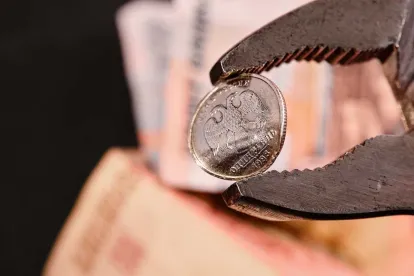The EU first adopted restrictive measures against the Russian Federation back in 2014, in response to Russia’s annexation of Crimea and Sevastopol and the destabilisation of Ukraine. Since then, the EU has massively expanded the sanctions, following Russia’s military aggression against Ukraine and its decision to recognise the non-government-controlled areas of the Donetsk and Luhansk oblasts as independent entities in 2022.
As of 19 October 2022, the EU has adopted eight so called “packages” of sanctions, each of them tightening and strengthening the effectiveness of already existing sanctions by, in particular, adding new restrictive measures, broadening the scope of the existing measures and adding more individuals and entities to the EU sanctions list. These measures are mainly aimed at weakening Russia’s ability to wage a war; therefore, they primarily target areas such as the financial sector, energy and transport sectors or dual-use goods. To that end, the sanctions include individual measures, as well as trade restrictions – in particular export and import bans – or even restrictions on media and other measures.
Individual Sanctions
Individual sanctions are directly aimed at persons and entities listed on the EU sanctions list. These persons and entities are subject to an asset-freeze, and it is prohibited for EU persons to make funds available to them. Among the first individuals to be listed were President Vladimir Putin and Sergey Lavrov, Minister for Foreign Affairs, followed by members of Russian State Duma and other political figures, oligarchs and their family members, prominent businesspeople, mainly those active in the energy, finance, media or defence and arms industries, as well as military persons and entities. There are currently 1262 individuals and 118 entities on the EU sanctions list.[1]
Restrictions Targeting the Energy Sector
Further, the sanctions include unprecedented trade restrictions. They are, inter alia, heavily targeted at essential commodities for the energy sector. Among the first measures to directly affect the energy sector, was the import ban on Russian coal and other solid fossil fuels, adopted under the 5th package of sanctions in April 2022. It is said to have affected one fourth of all Russian coal exports, amounting to around €8 billion loss of revenue per year for Russia. It was followed by a complete import ban on all Russian seaborne crude oil and petroleum products, introduced by the 6th package in June 2022. The embargo is said to cover 90% of the EU’s current oil imports from Russia. In 2021 alone, a total of €71 billion worth of crude oil and other petroleum products were imported into the EU. However, the ban is subject to certain transition periods, and includes a temporary exception for crude oil delivered by pipeline. Some of the Member States, among which the Czech Republic, are particularly dependent on these supplies and have therefore been granted an indefinite exemption. However, they shall not resell the oil they receive through the pipeline to other Member States or third-party countries, so that they do not gain a competitive price advantage. The exemption from the ban shall last until the Council decides otherwise.
In September 2022, the G7 first announced its intention to adopt an “oil price cap”. If implemented, the provision of services that enable maritime transportation of Russian-origin crude oil and petroleum products would be prohibited, unless these commodities are purchased at or below a determined price. Following this announcement, President Ursula von der Leyen stated that the European Commission intends to propose a price cap on Russian gas. At the beginning of this year, 40% of all gas import into the EU were from Russia, whereas now the EU is down to only 9%. However, some Member States remain heavily dependent on Russian imports and they are worried that the price cap might put their gas supplies from Russia at risk, especially since President Putin warned against this measure and threatened to cut off energy supplies if the price cap is introduced.
Trade Restrictions
The EU’s restrictive measures also include export bans on a wide range of goods and services. It is prohibited to sell, supply, transfer or export so called “dual-use goods and technology”, which are items, including software, that can be used for both civil and military purposes. Among these are items that can be used for the design, development, production or use of nuclear, chemical or biological weapons, including a wide range of electronic components.
Moreover, the export ban has also been imposed on goods, which could contribute to the enhancement of Russian industrial capacities. These include certain chemicals, packaging materials, wood, various types of machinery, or even roses and other live plants. Reportedly, the restrictions have caused disruptions in the supply chain and severely affected Russia’s access to advanced technology, such as chips. Due to the shortage, Sberbank, which has mostly worked with European chip producers, has started removing chips from unactivated bankcards to satisfy the demand.
Speaking of the banking sector, major Russian banks have also been heavily hit by the sanctions. In March, the EU, in cooperation with the US and the UK, has agreed to exclude key Russian banks from SWIFT, the world’s dominant financial messaging system. Sberbank was not among the first ones to be excluded, but, with the adoption of the 6th package of sanctions in early June 2022, Sberbank is now also excluded from SWIFT and is currently listed on the EU sanctions list.
Moreover, as of 22 July 2022, it is also prohibited to purchase, import or transfer gold if it originates in Russia and has been exported from Russia to the EU or to any third-party country after the said date. Therefore, the prohibition does not apply to gold that was already held by natural persons, companies, investors, banks or other entities across the Member States, if it was exported from Russia before 22 July 2022. The ban applies to gold, including gold in semi-manufactured forms or in powder form, waste and scraps of gold, and gold coins. Moreover, gold jewellery is also covered by the ban. However, the prohibition shall not apply to gold intended for the personal use of natural persons travelling to the EU, owned by those individuals and not intended for sale.
The Latest Package of Sanctions
The adoption of the 8th package of sanctions was announced on 6 October 2022. The latest restrictive measures include, inter alia, additional listings of persons and entities, new export and import restrictions and the legal basis for the anticipated oil price cap.
Additional export restrictions are aimed at further restricting Russia’s access to military, industrial and technological items in order to limit its ability to develop its defence and security sector. The measures include the export ban on coking coal – which is used in Russian industrial plants – specific electronic components found in Russian weapons, and certain chemicals. Moreover, almost €7 billion worth of additional import bans have been adopted. These include a ban on Russian steel products, machinery and appliances, wood pulp and paper, plastics, vehicles, textiles, footwear, leather, cigarettes, ceramics, certain chemical products and even non-gold jewellery.
Further, the basis for the G7 oil-price cap was introduced. Its objective is to reduce Russia’s revenues while keeping global energy markets stable through continued supplies. This measure is being closely coordinated on the G7 level and it should be effective as of 5 December 2022 for crude oil, and as of 5 February 2023 for refined petroleum products, both subject to a further decision by the Council.
Further, an additional 30 individuals and 7 entities have been added to the EU sanctions list. Among the designated individuals are those who played a role in the organisation of the referenda held in parts of the Donetsk, Kherson, Luhansk, and Zaporizhzhia regions of Ukraine, and their annexation by Russia. Moreover, representatives of the defence sector, such as Alan Lushnikov, the largest shareholder of arms producer JSC Kalashnikov Concern, or both former and current Deputy Ministers of Defence of the Russian Federation, have been listed. The sanctioned entities include, for example, defence companies providing weapons or fighter aircraft to the Russian Armed Forces. Moreover, the listing criteria were broadened in order to include the possibility to sanction those who facilitate the circumvention of EU sanctions.
The scope of services that can no longer be provided to the government of Russia or legal persons established in Russia has also been expanded. In addition to accounting, auditing, bookkeeping or tax consulting services, it shall also be prohibited to provide IT consultancy, legal advisory, architecture and engineering services. These restrictions shall have a significant impact on Russia’s industrial capacity, as it is highly dependent on import of these services. As the President of the European Commission stated, Russia should not benefit from European knowledge and expertise.
Moreover, the existing prohibitions with respect to crypto-assets have been tightened, as a full ban on the provision of the crypto-asset wallet, account or custody services to Russian persons – regardless of the total value of those crypto-assets – has been adopted. Previously, it was allowed to provide such services if the total amount did not exceed €10,000. In response to the annexation of certain regions of Ukraine, the geographical scope of the EU’s restrictive measures has been extended to cover all the non-government-controlled areas of Ukraine in the oblasts of Donetsk, Luhansk, Zaporizhzhia and Kherson.
FOOTNOTES
[1] As of 19 October 2022.





 />i
/>i
